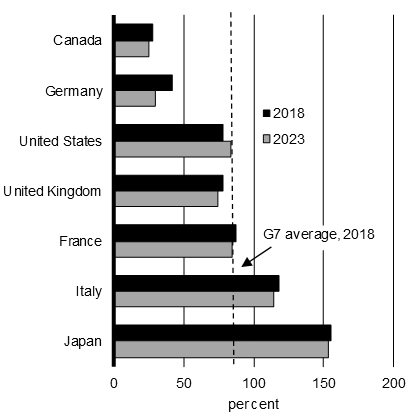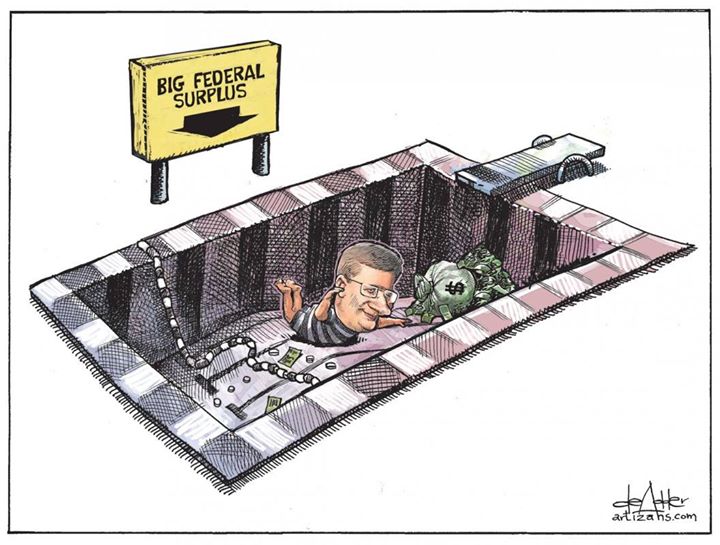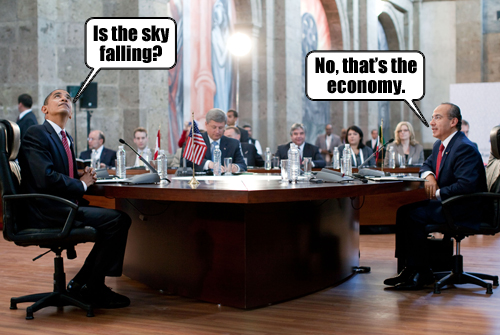Conservative economics drives and exacerbates income inequality. Their neoliberal ideology (Socialism for the Wealthy) started in the UK with Thatcher, the U.S. with Reagan, went into hyper-drive with Stephen Harper, and is in full swing in Ontario with Doug Ford. Alberta has followed with Jason Kenney’s tax cuts for wealthy corporations that are already paying the lowest taxes in Canada.
Andrew Scheer currently claims that PM Justin Trudeau made a “mess” of our economy and that it will take years to clean up so what happened? A trip down memory lane is essential but let’s define the “mess” first:
- Lowest debt-to-GDP ratio in the G7 and still decreasing;
- Foreign Direct Investment is up by 60% since last year;
- 300,000 families were lifted out of poverty;
- Canada has the lowest unemployment in over 4 decades;
- Canada’s job numbers make record gains: 1 Million new jobs since Nov 2015;
- Youth unemployment slashed;
- Our tech industry is booming because of Immigration & Liberal investment; and,
- Canadian wholesalers just posted fastest growth in 17 months!

A trip down memory lane: When the Conservatives came to power in 2006, they inherited a structural surplus of $13.8 Billion left by the Liberals but they blew through that before the global financial crisis hit.
The Harper Government gutted Canada’s fiscal capacity by cutting the GST 2 percentage points (against the advice of economists), slashed corporate taxes, and left us with a stagnant economy in 2015 amidst denials that we were facing another downturn. They also ignored the International Monetary Fund’s advice to stimulate the economy.
How to cook up a fiscal crisis for political gain
… “Never before in Canada had a newly elected government inherited a sustainable fiscal structure — a structure that had produced 11 years of surpluses and a declining debt burden. The fiscal situation could not have been better for the Conservatives.”
…
“Once the recession got rolling and the G20 nations agreed to introduce temporary stimulus spending equal to two per cent of GDP, the federal deficit ballooned: to $55.6 billion in 2009-10; $33.0 billion in 2010-11; $26.3 in 2011-12; $18.4 billion in 2012-13; and $5.2 billion in 2013.14.
“Prime Minister Harper couldn’t have been happier. He hadn’t planned on a recession, of course; both he and Jim Flaherty blithely said at first that Canada wouldn’t be affected by the global meltdown (so much for their forecasting skills). But that didn’t matter. Now that he had his ‘deficit problem’ — partly engineered through the GST cuts and partly imposed by the recession — he could turn his attention to establishing his fiscal rep by cutting government programs and services and developing his brand under the label ‘Canada’s Economic Action Plan’.
Voilà: majority government in 2011.

…
“Let’s turn back the clock to 2006 and imagine the PM having a change of heart — deciding not to cut the GST by two points.
“Without that loss of $14 billion in GST revenue, the deficit would have been much smaller. Simply adding back the $14 billion would have given us a deficit of $41.6 billion in 2009-10, $19.4 billion in 2010-11, $12.3 billion in 2011-12 and $4.4 billion in 2012-13. There could even have been a $9.2 billion surplus in in 2013-14 — two years before the government’s deadline. Net debt would have increased by less than $80 billion by 2015-16 — just over half the $150 billion increase we’re expecting now.
“And there would have been no need to cut government programs and services to anywhere near the degree the government did, since there would have been no structural deficit requiring radical action. The level of the net federal debt would be lower in 2015-16 by about $70 billion; the level of the debt-to-GDP ratio also would be lower. Economic growth and job creation would have been stronger. Unemployment would have been lower. But that was never the plan. Harper needed a deficit problem; the fact that the previous government neglected to leave him one was just a short-term inconvenience. From the very beginning his fiscal strategy has been driven by a commitment to his Conservative base and ideology — which demand smaller government by any means — and by a desire to show that he had ‘what it takes’. He desperately wanted to be seen by history as a better fiscal manager than his predecessors.
“Harper and Flaherty both believed — as do most modern Conservatives — that smaller government inevitably leads to stronger economic growth. Unfortunately, stubborn reality has once again refused to cooperate with an impractical theory.
“The evidence is clear: Cutting deficits does not by itself generate economic growth. The Conservative “growth friendly austerity” strategy has failed consistently, whenever and wherever it has been applied — in the U.S. under Republican administrations, in the eurozone in recent years, by the G20 after 2010 … and in Canada since 2010.
“Cutting the GST by two points will go down in Canadian fiscal history as one of the worst public finance decisions ever. It served no useful purpose — apart from giving the prime minister the cover he needed to impose a neo-liberal fiscal orthodoxy that diminished the federal government while failing to generate growth and jobs.”
“All Canadians paid the price for securing Mr. Harper’s legacy. We’ll go on paying it for while.” By Scott Clark and Peter DeVries, Dec 8, 2014

What Stephen Harper doesn’t get about deficits
“What Harper and Oliver refuse to understand is that not all deficits are bad — not all debt is bad. Having a balanced budget just isn’t that important — not when the engines of growth are stuttering. Having a low and relatively stable debt burden, however, is important. Harper’s commitment to balanced budget legislation, which he’ll probably table before the election, shows how little he knows about public finance.
…
The Harper government’s austerity-led growth strategy of deficit elimination, smaller government and policy ‘abstinence’ has failed dismally.”
Harper’s Secret Budget Cuts Undermine Canada’s Democracy
“Since 2011, the Harper government has linked the payment of bonuses for deputy ministers to how successfully they advance the government’s cost-cutting goals. Up to 40 per cent of a deputy minister’s total annual pay is in the form of bonuses. This could be a whopping $126,000 in bonus pay for the top executives.
“With Harper dangling that fat carrot in front of them, the mandarins have taken to the task with zeal. Between 2010 and 2012, the total annual amount of money spent on bonuses in the Public Service jumped from $4.4 million to just under $5 million.”
“In addition to executing the cuts, some senior bureaucrats are acting like snake oil salesmen when selling the diminished programs and services to Canadians. The louder they shout, “we’re ok, we can manage with the money we have,” the fatter their bonus is likely to be.”
AG: Canada’s Asylum System Overwhelmed
VIDEO: Law Professor (specializing in Immigration) says Stephen Harper & his Conservative Government BROKE & STARVED the Immigration & Refugee Board, as they wanted to destroy it. Thus they are responsible for the backlog we currently have – see video
Budget balanced at expense of veterans, unemployed, and safety
- Federal government employment has already shrunk by 36,900 people. By 2016, the total number of people working for the federal government will have fallen by 8%—significantly higher than the 4.8% figure reported in Budget 2012.
- From 2011-12 to 2016-17, the Veterans Affairs staff compliment will have been cut by 25%. The largest proportional staff cut will be to the program supporting disability, death, and financial benefits for veterans, where 32% of the positions will be cut.
- In 2012-13, 12 million calls to the Employment Insurance helpline went unanswered. These are cases where the phone lines were overloaded and callers could not even be added to the queue. In addition, there were 1.2 million abandoned calls, where individuals waiting on hold hung up before they were connected to agents.
- By 2016 the Canadian Food Inspection Agency will have lost 20% of its workforce and had its budget cut by 24%. CFIA’s Food Safety program, which handles inspections of food packaging and production facilities as well as food product regulation, has faced budget cuts of 22% ($82 million) and staff cuts of 13.5%.
- https://www.policyalternatives.ca/newsroom/news-releases/budget-balanced-expense-veterans-unemployed-and-safety-study#sthash.EN9DTf1F.dpuf

Corporate Tax Cuts Have Made Canada a Poorer Country
“In 2013/14, our federal government collected $34.6 billion in corporate income tax. If our rate were 30 per cent, i.e. 5 per cent lower than our U.S. neighbour, the federal coffer would have collected over $30 billion additionally. This is a huge sum of money and now you know why Canadian government is always poor — this are money that could be used on health care, child care, senior care, veteran support, advance education, job training, retirement, environment, social housing, infrastructure, or it could be used to subsidize Canada Post or CBC, etc.”
http://www.huffingtonpost.ca/gabriel-yiu/corporate-tax-cuts_b_8140696.html
Conservatives dismantling social programs built over generations
“From the unemployed to low-income families and poor seniors, more people than ever are struggling with grim choices as they try to cope in the leaner, meaner Canada presided over by Prime Minister Stephen Harper.
Overall, say anti-poverty activists, Harper’s policies have contributed to a glaring social deficit. The Canada Child Tax Benefit, the main federal tool for combating family poverty, needs substantially more funding, the group says.”
Austerity’s vicious circle
“Today’s austerity is not a response to fiscal crisis. The 2012 budget demonstrated that it’s about redefining the purpose of government, about dismantling, brick by brick, the progressive state built by governments of quite different stripes in the decades following the Second World War. Implied is a very different notion of our shared citizenship, of what binds us together across language, region and community.
…
We see this in the extent to which cuts target services for the most vulnerable: refugee claimants cannot get medical care; migrant workers cannot access benefits they’ve paid into; prisoners lose the meagre wages that might have helped them reintegrate when released; the unemployed have less access to employment insurance; veterans have less access to essential services. We lag in tackling inequality and poverty.
…
Austerity creates a cycle of erosion and distrust. As public services are squeezed, we get less, we wait longer, we pay more out of pocket, we get angry with government and, ironically, become less willing to pay the taxes that would stop this erosion. Why pay or even vote if government is not there for us.”
Robbing the poor to give to the rich
“The 10 budgets tabled by the Conservative government have contained tax changes that cumulatively have had the following effects:
- To defund the federal government in order to curtail the capacity of Canadians to act collectively through democratically controlled institutions;
- To reduce corporate taxes in order to increase corporate power and the wealth of shareholders;
- To shift taxes from capital to labour in order to make the rich richer and to force labour to bear the full cost of collective action;
- To support one-earner families in order to underline the importance of the traditional family and thus to ostensibly further reduce the need for government programs;
- To engage in social engineering through the enactment of tax expenditures so that these government subsidies aimed at particular political constituencies could be framed as tax cuts.
While using the tax system for these objectives, Harper has refused to use it to deal with some of Canada’s most pressing social and economic issues for which the tax system is an appropriate policy instrument, namely: alleviating inequality, tackling a stubbornly high level of poverty and combatting climate change.”
Feds penny-pinched on science libraries while lavishing funds on religion and oil
“Despite what some have called “obscene” spending in other departments, the government explained these closures as part of a cost-cutting measure, and the consolidations and digitization that followed as a way to streamline and modernize a seldom-used library system. Despite this explanation, it estimated 2014 to 2015 savings on the DFO shut downs at a paltry $443,000 — pennies in comparison with the newly-negotiated $22 million-government ad blitz that included $18 million in media buys to promote oil sands and natural resources in the U.S., Europe and Asia.
Harper government withholds millions budgeted for crime prevention
Before Parliament Hill attack, RCMP got 3 warnings, reduced patrols

RCMP forced to shuffle cash, staff to meet terrorism duties, documents show
Workers at risk due to low federal health, safety inspector staffing, report says
“A new report out of the Canadian Centre for Policy Alternatives says cuts and understaffing of federal health and safety inspectors is putting workers in jeopardy.”
Harper government left $97M unspent on social services, report shows
“Document shows youth employment plan biggest loser last year as promised funds ‘lapse'”
Status of Women Canada funding cuts were draconian
EXCERPTS: “Status of Women Canada (SWC) was founded in 1976. Between 1976 and 2006, the organization has provided funding to women’s groups including women’s shelters and research institutes.
September 25, 2006: The federal government announces a $5 million funding cut and changes to the mandate of the Women’s Program. Prime Minister Stephen Harper allegedly compels Conservative MPs not to oppose his decision of cutting the budget of SWC.
November 2006: 12 out of 16 regional offices of SWCare forced to close down after the budget cut leaving only 4 provincial offices to serve women.”
For follow-up for restored funding with the Liberal Government, see Status of Women Canada 2018
Harper government axes funding for 11 women’s groups
Kevin Page’s pre-election fiscal warning: ‘The process has been completely broken’
“A new government might have to top up budgets if they find a severe inability to provide services. Crucially, a new government in Ottawa could have to deal with the political fallout of finding a bureaucracy in worse shape than they expected.
“Those new people that (could) come in — they are not going to want to own Mr. Harper’s fiscal mismanagement legacy,” Page said.”
Country bracing for ‘made in Canada’ recession: former chief statistician
“Munir Sheikh told CTV’s Power Play on Thursday that the country is likely headed into a “made in Canada recession,” especially given recent news that the U.S. economy grew 3.7 per cent in the last quarter.”
CPP disability claims delayed by massive backlog, auditor finds
“A process designed by the former Harper government to be more timely and efficient is anything but, the auditor general found, with 38 per cent of people waiting over a year for their appeals just to be heard by the tribunal.”
Harper cut public service. This man thinks he has the fix.
“Between 2011 and March of 2015, 25,318 positions were eliminated according to Treasury Board data.
Statistics Canada estimates the federal public administration declined by 30,000 positions from 300,000 to 270,000, according to West, who notes that departmental spending reports show even more cuts were planned.”
https://www.nationalobserver.com/2016/02/09/news/harper-decimated-public-service-man-thinks-he-has-fix
Tootoo urged to promote TPP and billions in seafood exports, briefings show
“…the Harper government had cut annual spending on management of fisheries and ecosystems by $87 million or 17.7 percent. It also cut annual spending used to manage ecosystems and oceans science by $39.5 million or 16.3 per cent, Tootoo was told.”
CFIB: Small business and the budget — and the perils of sucking up to power
The CFIB lobby group is one that all Conservatives pander to and that included Stephen Harper, Doug Ford in Ontario and Jason Kenney in Alberta.
” You might argue about the policy merits of giving small business a further break on taxes, but it should be come as no surprise that the Liberals decided to give the middle finger to Kelly and the CFIB. During the Harper years, the organization turned itself into a shrill, partisan, ideological arm of the Conservative party — a tactic that may have won it short-term gains but also made it an easy target for the newly-elected Liberal government.
Time and again, the Harper government lifted demands from the CFIB’s wish list and turned them into government policy — sometimes without even doing cursory analysis of the measures themselves. When the CFIB wanted a lower small-business tax rate, it got one. When it asked for a kickback of EI premiums and decided to call it a Hiring Credit, it got one. When it asked for an assurance that employers would never have to pay a cent for even a modest improvement in the Canada Pension Plan, the answer — again — was yes.
The process became obscene. Rather than have the government announce policy and applaud it later, Kelly would be right there on the podium with Jim Flaherty or Joe Oliver — as if he were a junior minister or a local Tory MP, rather than the head of a non-partisan industry group. In the most outrageous example of the CFIB’s hold on the Harper government, Ottawa introduced a Small Business Job Credit that turned out to be a gift of $550 million in lower EI premiums for small business owners (small-business employees, of course, got no such break).”